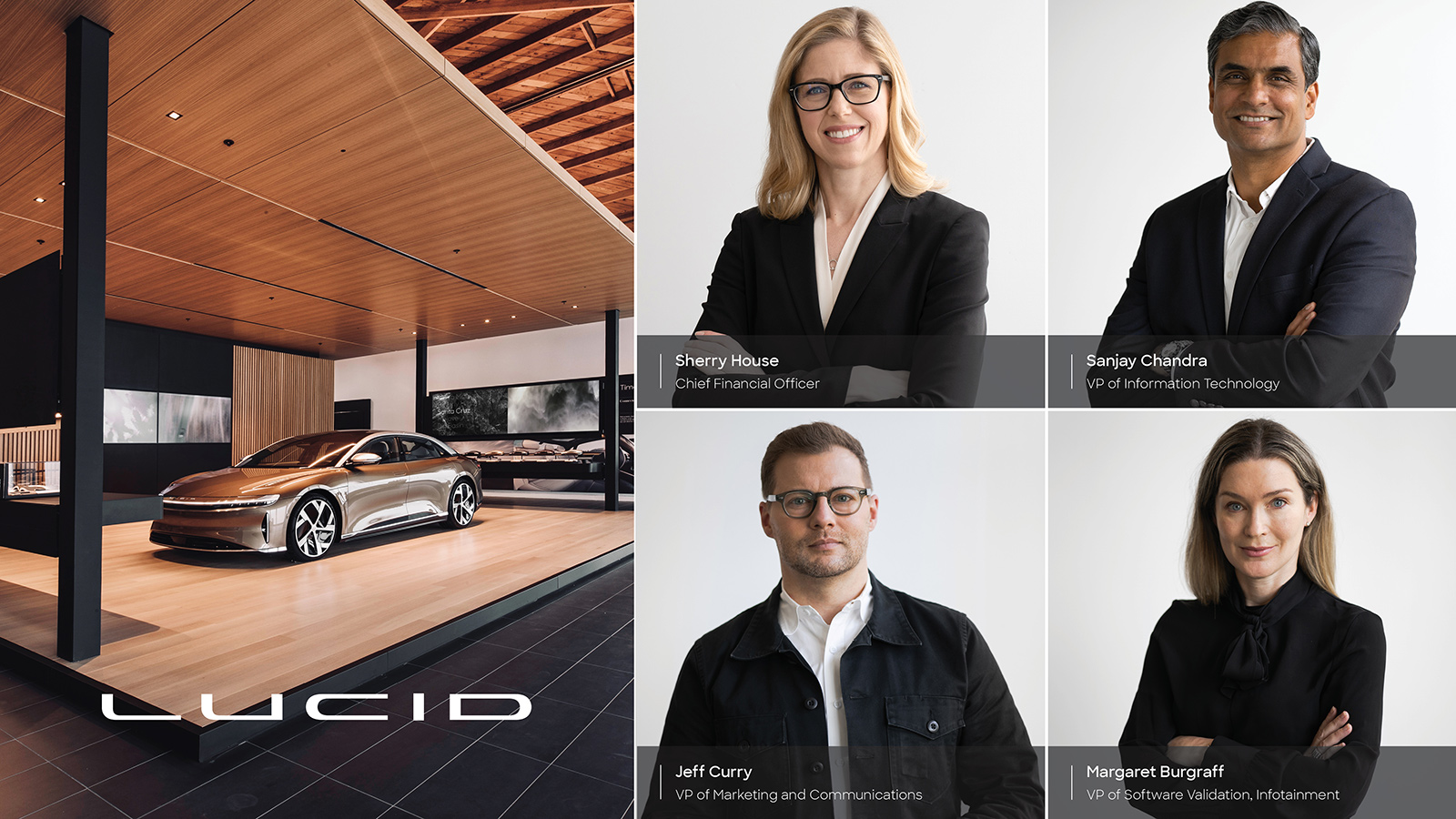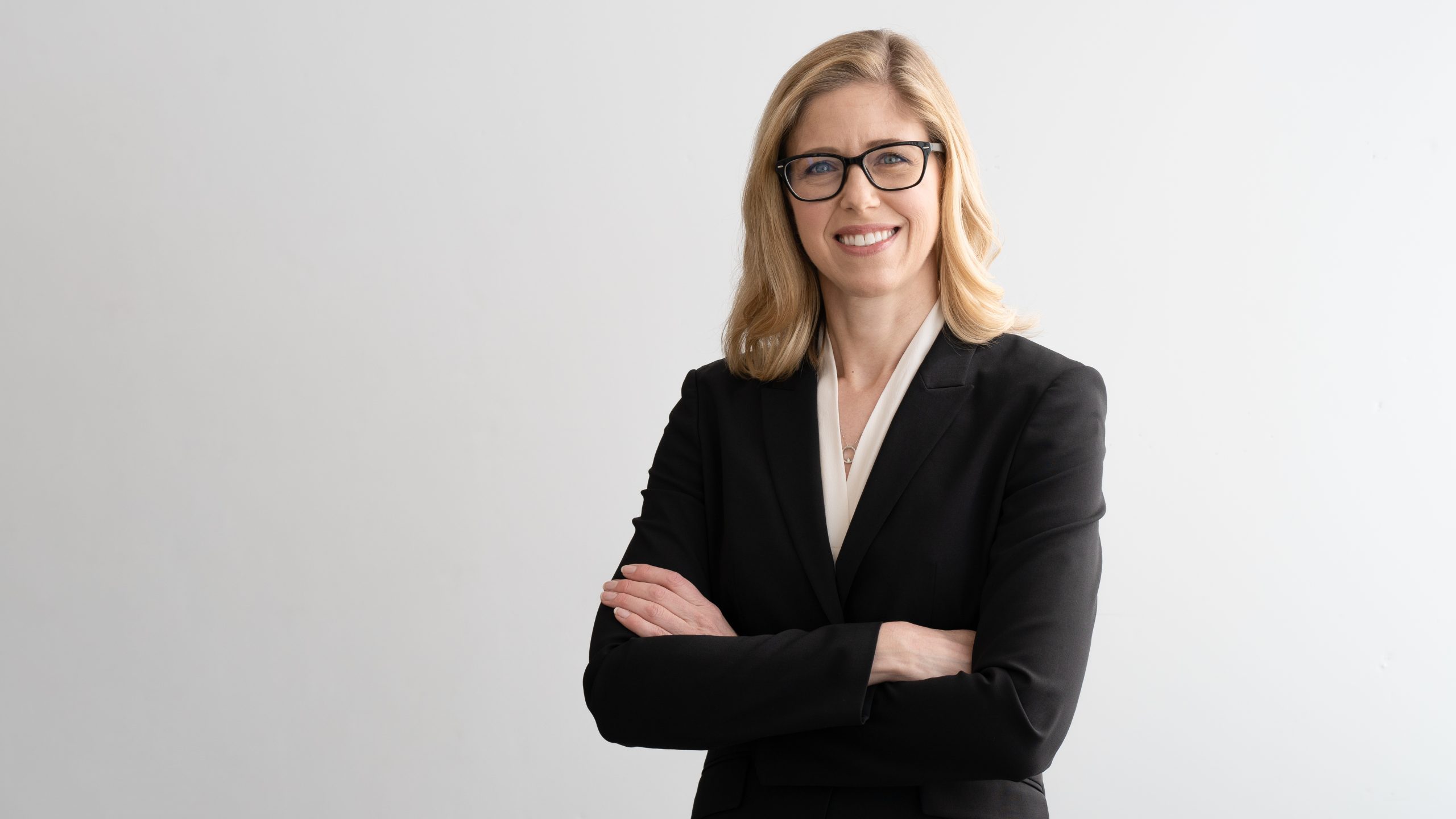

Investor's Corner
Lucid Motors adds former Waymo Treasurer as CFO as company prepares to go public
Lucid Motors has announced that it has appointed former Waymo Treasurer and Head of Investor Relations Sherry House as its Chief Financial Officer ahead of the automaker’s decision to become a publicly-traded company. Along with the addition of House to the Lucid executive team, the company has added several other new executives who will contribute key insights to the automaker’s financial, technological, and strategic plans as it prepares for the first deliveries of the Lucid Air sedan.
Sherry House: Lucid Motors’ new Chief Financial Officer
Sherry House has officially joined the company on May 5th, leaving her post as Waymo’s Treasurer and Head of Investor Relations after nearly four years. During House’s time at Waymo, the University of Michigan grad built and led a team that handled the company’s financial health and investment plans. Her LinkedIn page says she also led all funding and financing initiatives and managed investor communications to promote growth. House’s expertise with both large Fortune 500 companies and small, emerging startups makes her an ideal candidate for the position of Lucid’s CFO. Lucid CEO and CTO Peter Rawlinson is excited about his company’s new addition.
Sherry House leaves her post as Waymo’s Treasurer and Head of Investor Relations to join Lucid Motors as the company’s Chief Financial Officer.
“We are delighted to have Sherry join us. Her rare combination of financial and technical experience bolsters our core leadership team in a pivotal year for Lucid as we prepare to transition to a publicly traded company and launch the Lucid Air,” Rawlinson said. “We stand on the cusp of delivering the world’s most advanced electric vehicles, and now with the arrival of Sherry, augmented by the ongoing, invaluable contribution of our Vice President of Finance, Mike Smuts, we continue to build out what I believe to be the EV industry’s strongest leadership team.”
Other New Additions: Margaret Burgraff, Sanjay Chandra, and Jeff Curry
Lucid is making several other additions to its executive team in preparation for the Air’s launch in a few months. Along with House, the company added Margaret Burgraff as the Vice President of Software Validation, Sanjay Chandra as Vice President of Information Technology, and Jeff Curry as Vice President of Marketing and Communications. The additions are critical in Lucid’s eventual introduction as a public company where investors can openly buy and sell shares. In an emerging market of competitive electric vehicle companies, Lucid is preparing to cater to investors in any way possible. It starts with surrounding an already impressive team of executives with more seasoned veterans who come from the automotive and technology sectors.
Margaret Burgraff is joining Lucid with the title of VP of Software Validation. After 25 years in the industry with companies such as Apple and Intel, where she most recently served as VP of Global Developer Relations, Burgraff was responsible for co-engineering and enabling global independent software vendors to work best with Intel’s product portfolio. Additionally, she has presented to large, global audiences that include topics like Artificial Intelligence, data, and female empowerment.
Sanjay Chara will become Lucid’s first-ever VP of Information Technology. His career has culminated with over 20 years of experience with large companies like Workday, PayPal, and Virgin Mobile. His most recent role was CIO and Head of Cloud Operations at TiVo/Xperi, a position he held for over eight years. He was responsible for cloud operations, infrastructure, and eCommerce, resulting in “explosive business growth and customer expansion.
Finally, Lucid brings on Jeff Curry to take the role of VP of Marketing and Communications. After serving as a successful member of several iconic brands and high-tech startups, such as SiriusXM, Saab, Audi of America, Ferrari North America, and Jaguar, Curry’s most notable work has been in large, well-known events like the Super Bowl. Curry joined Lucid after leaving Jaguar but led the e-mobility campaign strategy for Audi. He joined Lucid’s team as a consultant in December 2019 but now has gained a permanent position as the automaker’s VP of Marketing and Communications.


Elon Musk
Tesla stock gets latest synopsis from Jim Cramer: ‘It’s actually a robotics company’
“Turns out it’s actually a robotics and Cybercab company, and I want to buy, buy, buy. Yes, Tesla’s the paper that turned into scissors in one session,” Cramer said.

Tesla stock (NASDAQ: TSLA) got its latest synopsis from Wall Street analyst Jim Cramer, who finally realized something that many fans of the company have known all along: it’s not a car company. Instead, it’s a robotics company.
In a recent note that was released after Tesla reported Earnings in late January, Cramer seemed to recognize that the underwhelming financials and overall performance of the automotive division were not representative of the current state of affairs.
Instead, we’re seeing a company transition itself away from its early identity, essentially evolving like a caterpillar into a butterfly.
The narrative of the Earnings Call was simple: We’re not a car company, at least not from a birds-eye view. We’re an AI and Robotics company, and we are transitioning to this quicker than most people realize.
Tesla stock gets another analysis from Jim Cramer, and investors will like it
Tesla’s Q4 Earnings Call featured plenty of analysis from CEO Elon Musk and others, and some of the more minor details of the call were even indicative of a company that is moving toward AI instead of its cars. For example, the Model S and Model X will be no more after Q2, as Musk said that they serve relatively no purpose for the future.
Instead, Tesla is shifting its focus to the vehicles catered for autonomy and its Robotaxi and self-driving efforts.
Cramer recognizes this:
“…we got results from Tesla, which actually beat numbers, but nobody cares about the numbers here, as electric vehicles are the past. And according to CEO Elon Musk, the future of this company comes down to Cybercabs and humanoid robots. Stock fell more than 3% the next day. That may be because their capital expenditures budget was higher than expected, or maybe people wanted more details from the new businesses. At this point, I think Musk acolytes might be more excited about SpaceX, which is planning to come public later this year.”
He continued, highlighting the company’s true transition away from vehicles to its Cybercab, Optimus, and AI ambitions:
“I know it’s hard to believe how quickly this market can change its attitude. Last night, I heard a disastrous car company speak. Turns out it’s actually a robotics and Cybercab company, and I want to buy, buy, buy. Yes, Tesla’s the paper that turned into scissors in one session. I didn’t like it as a car company. Boy, I love it as a Cybercab and humanoid robot juggernaut. Call me a buyer and give me five robots while I’m at it.”
Cramer’s narrative seems to fit that of the most bullish Tesla investors. Anyone who is labeled a “permabull” has been echoing a similar sentiment over the past several years: Tesla is not a car company any longer.
Instead, the true focus is on the future and the potential that AI and Robotics bring to the company. It is truly difficult to put Tesla shares in the same group as companies like Ford, General Motors, and others.
Tesla shares are down less than half a percent at the time of publishing, trading at $423.69.
Elon Musk
Tesla to a $100T market cap? Elon Musk’s response may shock you

There are a lot of Tesla bulls out there who have astronomical expectations for the company, especially as its arm of reach has gone well past automotive and energy and entered artificial intelligence and robotics.
However, some of the most bullish Tesla investors believe the company could become worth $100 trillion, and CEO Elon Musk does not believe that number is completely out of the question, even if it sounds almost ridiculous.
To put that number into perspective, the top ten most valuable companies in the world — NVIDIA, Apple, Alphabet, Microsoft, Amazon, TSMC, Meta, Saudi Aramco, Broadcom, and Tesla — are worth roughly $26 trillion.
Will Tesla join the fold? Predicting a triple merger with SpaceX and xAI
Cathie Wood of ARK Invest believes the number is reasonable considering Tesla’s long-reaching industry ambitions:
“…in the world of AI, what do you have to have to win? You have to have proprietary data, and think about all the proprietary data he has, different kinds of proprietary data. Tesla, the language of the road; Neuralink, multiomics data; nobody else has that data. X, nobody else has that data either. I could see $100 trillion. I think it’s going to happen because of convergence. I think Tesla is the leading candidate [for $100 trillion] for the reason I just said.”
Musk said late last year that all of his companies seem to be “heading toward convergence,” and it’s started to come to fruition. Tesla invested in xAI, as revealed in its Q4 Earnings Shareholder Deck, and SpaceX recently acquired xAI, marking the first step in the potential for a massive umbrella of companies under Musk’s watch.
SpaceX officially acquires xAI, merging rockets with AI expertise
Now that it is happening, it seems Musk is even more enthusiastic about a massive valuation that would swell to nearly four-times the value of the top ten most valuable companies in the world currently, as he said on X, the idea of a $100 trillion valuation is “not impossible.”
It’s not impossible
— Elon Musk (@elonmusk) February 6, 2026
Tesla is not just a car company. With its many projects, including the launch of Robotaxi, the progress of the Optimus robot, and its AI ambitions, it has the potential to continue gaining value at an accelerating rate.
Musk’s comments show his confidence in Tesla’s numerous projects, especially as some begin to mature and some head toward their initial stages.
Elon Musk
Tesla director pay lawsuit sees lawyer fees slashed by $100 million
The ruling leaves the case’s underlying settlement intact while significantly reducing what the plaintiffs’ attorneys will receive.

The Delaware Supreme Court has cut more than $100 million from a legal fee award tied to a shareholder lawsuit challenging compensation paid to Tesla directors between 2017 and 2020.
The ruling leaves the case’s underlying settlement intact while significantly reducing what the plaintiffs’ attorneys will receive.
Delaware Supreme Court trims legal fees
As noted in a Bloomberg Law report, the case targeted pay granted to Tesla directors, including CEO Elon Musk, Oracle founder Larry Ellison, Kimbal Musk, and Rupert Murdoch. The Delaware Chancery Court had awarded $176 million to the plaintiffs. Tesla’s board must also return stock options and forego years worth of pay.
As per Chief Justice Collins J. Seitz Jr. in an opinion for the Delaware Supreme Court’s full five-member panel, however, the decision of the Delaware Chancery Court to award $176 million to a pension fund’s law firm “erred by including in its financial benefit analysis the intrinsic value” of options being returned by Tesla’s board.
The justices then reduced the fee award from $176 million to $70.9 million. “As we measure it, $71 million reflects a reasonable fee for counsel’s efforts and does not result in a windfall,” Chief Justice Seitz wrote.
Other settlement terms still intact
The Supreme Court upheld the settlement itself, which requires Tesla’s board to return stock and options valued at up to $735 million and to forgo three years of additional compensation worth about $184 million.
Tesla argued during oral arguments that a fee award closer to $70 million would be appropriate. Interestingly enough, back in October, Justice Karen L. Valihura noted that the $176 award was $60 million more than the Delaware judiciary’s budget from the previous year. This was quite interesting as the case was “settled midstream.”
The lawsuit was brought by a pension fund on behalf of Tesla shareholders and focused exclusively on director pay during the 2017–2020 period. The case is separate from other high-profile compensation disputes involving Elon Musk.








